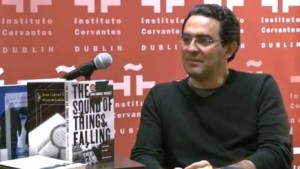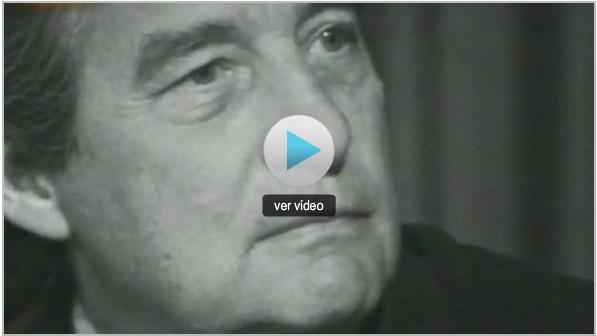Blog del Instituto Cervantes de Dublín
Torre Martello
20 escritores de siete países y miles de historias / 20 Writers from Seven Different Countries and Thousands of Stories
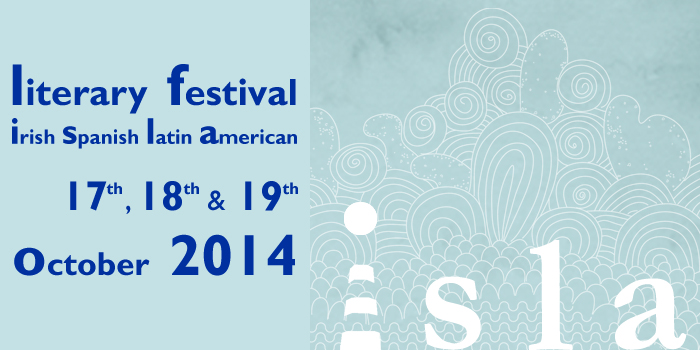
La 3ª edición del Festival Isla de literatura comienza en poco más de una semana. Un festival único en Dublín y en Irlanda. Este año, nuestra «ISLA» (acrónimo de Irish, Spanish and Latin American) recibe la visita de escritores consagrados, prometedores, y la de críticos, traductores y otras personalidades con una fuerte vinculación con el mundo literario de América Latina, España e Irlanda.
John Banville, Premio Príncipe de Asturias 2014, abrirá oficialmente el festival el viernes 17 a las 4 de la tarde y participará en la primera mesa redonda que lleva por título Retratar escribiendo, junto a la vanguardista escritora chilena Diamela Eltit y al multipremiado escritor español José Ovejero. La primera tarde del festival concluirá con el debate «Construyendo identidades» en el que contaremos con la presencia de Donal Ryan, autor de Spinning Heart’s, la poeta y traductora literaria Anamaría Crowe Serrano, y el escritor experimental Christodoulos Makris.
El tema central del sábado, «Nos gustan las historias» comenzará comenzará con la conversación en torno al valor de los cuentos con la presencia de Claire Keegan, el escritor vasco Harkaitz Cano y la poeta irlandesa Mary O’Malley. La segunda mesa redonda del día, «La palabra imprecisa», tendrá como invitados al autor de The Specked People’s, Hugo Hamilton, la poeta gallega Marta Dacosta y el escritor y comunicador irlandés Manchán Magan. Todos ellos abordarán temas como las peculiaridades, ventajas o problemas que supone vivir entre dos o más lenguas. El sábado finalizará con una mesa dedicada a reconocer y repasar el legado literario del gran escritor mexicano Octavio Paz. A esta conversación le seguirá una lectura poética en inglés, español, vasco y gallego.
Pero el sábado no termina ahí porque, especialmente para los interesados en la figura de Gabriel García Márquez y el propio Octavio Paz, la velada continuará con la proyección de los documentales Buscando a Gabo y Vida y obra de Octavio Paz.
El domingo es el día de «Cultura de libros», que comenzará con el debate sobre ficción y realidad en Literaturas enfrentadas con Paul Lynch, autor de Red Sky in Morning, el escritor y comunicador Norirlandés Malachi O’Doherty y el poeta y novelista argentino Américo Cristófalo. Cerraremos el festival con «Acceso a la cultura», con el escritor y comunicador irlandés John Kelly, la directora del semanario El Cultural, la periodista española Blanca Berasategui, y el escritor chileno Waldo Rojas.
Isla es, en definitiva, un festival dedicado a todos los que disfrutan de la lectura, la traducción, la poesía, el cuento y la literatura en general. Un diálogo entre culturas, un encuentro entre tres tradiciones literarias de primer orden y una ocasión inmejorable para acercarse a las letras en español.
¿Dónde?: Instituto Cervantes, Lincoln House, Lincoln Place, Dublin 2.
¿Cuándo?: 17, 18 y 19 de octubre.
Apertura oficial: John Banville, 17 de octubre a las 4 de la tarde.
Entrada libre.
Traducción simultánea en inglés y español.
Texto: Miriam Abuin (prensa) prendub@cervantes.es
The 3rd ISLA Literary Festival sets itself as a unique event in Dublin and Ireland. ISLA (from Irish, Spanish and Latin American) Literary Festival welcomes well known and emerging writers and other personalities with a strong connection to the literary world from these three traditions.
John Banville will inaugurate the festival on Friday 17th at 4pm, and will take part in the first discussion about Portraying Through Writing, in which he will participate with the versatile Spanish writer José Ovejero and the avant-garde Chilean author Diamela Eltit. The evening will conclude with the round table Building Identities with Spinning Heart’s Donal Ryan, poet and literary translator Anamaría Crowe Serrano and the experimental writer Christodoulos Makris.
Saturday’s theme is We All Like Stories. We will commence talking about the value of short stories with Claire Keegan, Basque author Harkaitz Cano and Irish poet Mary O’Malley. In the round table Ambiguous Word, The Specked People’s author, Hugo Hamilton, Galician poet Marta Dacosta and Irish language writer and broadcaster Manchán Magan will discuss the challenges of living in between two or more languages. The last discussion of the day will be dedicated to the cultural and literary legacy of Mexican author Octavio Paz. The panel will be followed by a poetry reading in English, Spanish, Basque or Galician.
For those interested in Gabriel García Márquez and Octavio Paz, they can continue the evening enjoying the screenings of Buscando a Gabo and Vida y obra de Octavio Paz. Both documentaries focus on the personal lives of these Nobel Prize winning writers.
Sunday´s Book Culture will start with the panel about Facing Literatures: Fiction and Non Fiction with the author of Red Sky in Morning Paul Lynch, the Northern Irish writer and broadcaster Malachi O’Doherty and Argentinean poet and novelist Américo Cristófalo. We will close the festival with Access to Culture, with Irish writer and broadcaster John Kelly, the director of El Cultural, Spanish journalist Blanca Berasategui and Chilean writer Waldo Rojas.
ISLA is a multilingual and multicultural event for those who enjoy reading, translation, poetry, short stories, memoirs, travel books or novels. It’s a dialog between cultures, an encounter between these three literary traditions and an incomparable occasion to get close to some of your favourite writers in Spanish.
Location: Instituto Cervantes, Lincoln House, Lincoln Place, Dublin 2
Date: 17th, 18th and 19th October
Opening speech by John Banville, 17th October at 4pm
Free Admission
Simultaneous interpreting available for attendees in Spanish and English
Text by: Miriam Abuin (press officer, prendub@cervantes.es)
Juan Gabriel Vásquez, Premio IMPAC 2014. ¡Felicidades! / Congratulations!
Juan Gabriel Vásquez: Write Only if You Think That you will Be Unhappy Otherwise
Interview with Juan Gabriel Vásquez on the 14th November 2012, at the Dámaso Alonso Library of the Instituto Cervantes in Dublin, in association with his participation in the launch of his lastest novel, The Sound of Things Falling.
Juan Gabriel Vásquez (Bogotá, 1973) is the author of a collection of stories, Los amantes de Todos los Santos, and the novels Los informantes (The Informers, Riverhead Books, 2009) and Historia secreta de Costaguana (The Secret History of Costaguana, Riverhead Books, 2011). He has also published a collection of literary essays, El arte de la distorsión (which include an essay that won the Simón Bolívar Award in 2007), and a brief biography of Joseph Conrad, El hombre de ninguna parte. He has translated works by John Hersey, John Dos Passos, Victor Hugo and E. M. Forster, amongst others, and is a columnist for the Colombian newspaper El Espectador. His books have been published in fourteen languages and thirty countries. His third novel, El ruido de las cosas al caer, (The Sound of Things Falling, Bloomsbury, 2012) won the Alfaguara Award in 2011.
Sergio Angulo: —Juan Gabriel, The Sound of Things Falling is your latest novel, tell us about it.
Juan Gabriel Vásquez: —The novel is the story of this young law professor called Antonio Yammara, who one day meets this mysterious character, a guy called Ricardo Laverde, who evidently has something to hide and is not who he says he is. What begins as this frivolous curiosity, turns into something more serious when this Ricardo Laverde gets killed by a sniper in the street, by a hit-man. The narrator gets hit by a bullet, a straight shot that obviously changes his life. He becomes obsessed with finding out who this guy really was and why he was killed, in order to reach some conclusions about what has happened to him and why his life has changed. So he embarks on this personal investigation, a personal enquiry into the life of a dead man and his past of Colombia. This sends him back to the years in which the drug trade effectively began in Colombia, the early seventies.
We learn that this guy was a pilot and he was not only a witness, but also a participant in the first phase of the drug trade. The novel becomes a sort of exploration of what it means to my generation to grow up surrounded by the drug trade, and particularly, what it means for us to have suffered through the worst years of drug-related violence – of the drug wars in the eighties, when Pablo Escobar basically declared war against the Colombian Government. This is what I have tried to explore.
Sergio Angulo: —The story is not a real case, but it somehow, portrays the reality of this era in Colombia.
Juan Gabriel Vásquez: —It’s a work of fiction, but I tried to explore things that really happened. One of my obsessions has been, not only in this novel, but in my other novels too, how public events shape our private lives. This is one of the things that interests me as a novelist – how things that happened in what we call “history” or “politics” penetrate our lives and affect the way we behave as friends, or as couples, or as parents and children.
One of the reasons behind the writing of this novel was to realise that, in those years, during that period of violence, we had a lot of public information, we had a lot of statistics, a lot of images in the media, (we can even find the video of a presidential candidate in Colombia getting killed) but, at some point, I became anxious at the idea that there wasn’t a place we could go to find out about the effects all of this had had on private or personal lives. In a way, the novelist I wanted to be, is a sort of historian of emotions. I tried to explore the emotional and moral side of those very public events.
Sergio Angulo: —You were living in France for a while and, as far as I know, you are now based in Spain, in Barcelona. Has this distance had any effect on the way you see Colombia now?
Juan Gabriel Vásquez: —It’s very difficult to prove, but I’ve always said that, the only reason I´m able to write about Colombia, is because I have left. My first book was a book of stories about Belgium and France, and people used to ask me, “Why don’t you write about Colombia?” And the reason, to sum it up in a nutshell, is that I felt that, since I didn’t really understand my country, I wasn’t allowed to write about it. But because of the distance, because of the time I spent abroad, and because there was an ocean between my country and me, I ended up realising that, perhaps the fact that I didn’t understand my country was the best reason to write about it. I could use novels as a way of understanding the history of my country and how that has shaped me as an individual.
Sergio Angulo: — Historically, Barcelona is a place where many of the most important Latin American authors have lived. Now we are celebrating the 50th anniversary of the Latin American literary boom. Is this literary boom still happening, or has there been a turning point with new generations taking different paths?
Juan Gabriel Vásquez: —I always considered the writers of the Latin American boom as the real founders of my tradition. The tradition in which I tried to write began with them. Before them, the Latin American novel had maybe produced a couple of isolated things, very interesting things, but isolated. There wasn’t a tradition of Latin American novels to speak of. It all began with Vargas Llosa, García Márquez, Carlos Fuentes and Julio Cortázar. So, in a way, they’re quite present for me, in the sense that they are all still living. Vargas Llosa and García Márquez are still living. Vargas Llosa is still writing. But, at the same time, they are classics. They are living classics, and for me, having them sharing the same world, is almost as if a 21st Century Irish writer could pick up the phone and call James Joyce. It’s a very strange situation, and a very profitable one. I don’t feel in any way threatened by their presence, as many writers do. I feel there is a very big legacy that has opened doors for the people who have come after them.
Sergio Angulo: —Living in Europe, is our perception of Latin America accurate?
Juan Gabriel Vásquez: —There is always a certain degree of inacuracy. But it works both ways. The media have an extraordinary ability to distort the image of a country, sometimes through no fault of their own, because time in the media is limited, resources in the media are limited… But one of the nice things that novels do is, in a way, fight against cliché, against stereotypes, so perhaps we, as readers, get a much better understanding about the complexity of the United States, when we read Philip Roth. Maybe an Irish reader, or a British reader, will get a better understanding about Colombia and the complexity of life there, the contradictions, the unpredictability of life in Colombia, when they read a novel such as this one. In any case, that’s what I would like to see happening.
Sergio Angulo: —You are very young, but you are already at the peak of the literary world. How is the view when looking down?
Juan Gabriel Vásquez: —In reality, I’m looking towards the next book, and wondering how difficult it will be to write it, because one of the cruel things of this trade is that every book is more difficult than the last one, in the sense that you know more things, you’re more conscious of the pitfalls and the problems, and the difficulties of writing. You don’t want to repeat yourself. I’m one of those writers who wants to change with every book. You always get deeper and deeper into this arrogant mindset that you can write a book like the books you love. And I think that’s what you constantly strive to do. You never get to do it, of course, because it’s impossible to write a book like those books that made me want to become a writer. But I think in the attempt to accomplish this, you might give the reader a couple of nice pages, and that’s probably enough.
Sergio Angulo: —Finally, any advice for a young writer who is at the bottom of the hill, getting his book and his backpack ready to start climbing the mountain?
Juan Gabriel Vásquez: —Well, I always give the same piece of advice, which is very simple but very honest, and I think it’s very useful, – Write only if you feel it’s absolutely necessary. The writing life is a very difficult life to live. You have to sacrifice friends, you have to sacrifice time with your family, so write only if you think that you will be unhappy if you don’t do it. Forget about the money, the reviews… they don’t matter. Write only if you know that your only reward will be the satisfaction of a job well done.
Recommended links
- [Video] Interview with Juan Gabriel Vásquez at the Instituto Cervantes in Dublin by Sergio Angulo.
- Juan Gabriel Vásquez in El Espectador.
- Juan Gabriel Vásquez in Alfaguara.
¡Hoy os presentamos Biblioteca literaria 2014! / Literary Library 2014 is now available to all our readers!
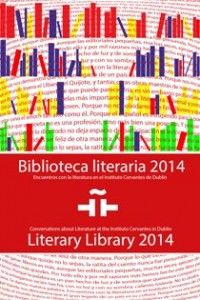 Porque Irlanda nos demuestra que el gran legado de un país es su cultura. Porque nos encantaría que todo el mundo leyera el Ulises y el Quijote, y tantas otras obras maestras de nuestras literaturas. Porque Borges, bajo una superficie que puede parecer fría, es sin embargo profundamente humano. Porque Drácula es una de las diez novelas más importantes de la literatura universal y porque su autor, Bram Stoker, está cada día más joven, hoy os presentamos Biblioteca literaria 2014: Encuentros con la literatura en el Instituto Cervantes de Dublín.
Porque Irlanda nos demuestra que el gran legado de un país es su cultura. Porque nos encantaría que todo el mundo leyera el Ulises y el Quijote, y tantas otras obras maestras de nuestras literaturas. Porque Borges, bajo una superficie que puede parecer fría, es sin embargo profundamente humano. Porque Drácula es una de las diez novelas más importantes de la literatura universal y porque su autor, Bram Stoker, está cada día más joven, hoy os presentamos Biblioteca literaria 2014: Encuentros con la literatura en el Instituto Cervantes de Dublín.
Porque el español es estupendo para la poesía, y porque hay quien dice que ser poeta no es una profesión, sino más bien una posesión. Porque hay que escribir si sientes que no podrás ser feliz de otra manera. Porque lo que busca un escritor es contar conflictos y porque, aunque quizás no lo sepas, la ratita del cuento nunca fue presumida. Por todo ello y por mil razones más hemos hecho este libro para ti, querido lector. Porque la palabra es un pan hecho de luz y de sombra que queremos compartir contigo. Aquí te la entregamos recién hecha, con su luz y con su sombra, caliente todavía. No lo dudes, merece la pena. Te damos nuestra palabra.
Biblioteca Literaria 2014 contiene catorce entrevistas con escritores y editores, en versión bilingüe español–inglés. En ellas se tratan temas tan diversos como la literatura fantástica, el cine, la creación poética, o la obra de autores como Federico García Lorca, Jorge Luis Borges, James Joyce o Bram Stoker. El libro ofrece también acceso a las versiones en video de estas entrevistas. A partir de hoy, está a tu disposición en nuestra biblioteca electrónica con tu número de carné de biblioteca y tu contraseña. Si no lo tienes todavía, puedes descargar el libro en formato PDF desde este mismo enlace.
Because Ireland has proven that the great legacy of a country is its culture. Because we would love everybody to read Ulysses and Don Quixote, and many other literary masterpieces. Because Borges is profoundly human, behind a surface that seems cold. Because Dracula is one of the ten most important novels of world literature and because its author, Bram Stoker, is getting younger everyday, today we present to you our Literary Library 2014: Conversations About Literature at the Instituto Cervantes in Dublin.
Because Spanish is great for poetry and some say that being a poet is not a profession but rather a possession. Because you have to write if you think you’ll be unhappy otherwise. Because a writer seeks ways to address conflicts and because, though you may not know it, the little rat of the tale was never vain. These are some of the thousands of reasons we made this book for you, dear reader. A word is a loaf of bread, made of light and shadow that we would like to share with you. Here we give it to you freshly made, with its light and its shadow, still warm. Don’t hesitate, it’s worth it. We give you our word.
Literary Library 2014 is a bilingual Spanish-English e-book containing fourteen interviews with writers and publishersthat took place at the Damaso Alonso Library during 2012.Literary Library 2014 contains interviews with Miguel Aguilar, Luis Alegre, Malcolm Otero Barral, Luis Alberto de Cuenca, Ángel Guinda, Ana Cristina Herreros, Alicia Mariño, Ignacio Martínez de Pisón, Judith Mok, Antonio Praena, Bill Richardson, Manuel Rivas, Ada Salas, David Trueba and Juan Gabriel Vásquez.
In these conversations we cover topics as diverse as Fantastic literature, cinema, poetic creation, or the work of authors such as Jorge Luis Borges, Federico García Lorca, James Joyce or Bram Stoker. You can download it right now from our e-library with your membership number and your password. If you don’t still have a library card, you can download this bilingual e-book in PDF format following this link.
The book also offers access to the videos of these interviews and other recommended links.
10 escritores para invitar a casa durante el fin de semana / 10 writers to invite home for the weekend
¿Qué os parece si este fin de semana nos repatingamos en el sillón e invitamos alguno de estos diez autores para que nos visiten con sus historias en el salón de nuestra casa? Son diez autores de éxito, traducidos y premiados, reconocidos internacionalmente, cuyas novelas podéis descargar cómodamente desde vuestra casa a través de nuestra biblioteca electrónica. A ver qué os parece la selección (por orden alfabético, para que nadie se moleste):
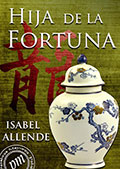 Isabel Allende ¿Quién no ha leído al menos un libro de Isabel Allende, quién no la conoce? Podéis elegir entre La hija de la fortuna (en la imagen) y otros 15 títulos de su extensa bibliografía: El bosque de los pigmeos, La casa de los espíritus, La ciudad de las bestias, Cuentos de Eva Luna, De amor y de sombra, Eva Luna, Inés del alma mía, La isla bajo el mar, Mi país inventado, Paula, El plan infinito, El reino del dragón rojo, Retrato en sepia, La suma de los días, o El zorro.
Isabel Allende ¿Quién no ha leído al menos un libro de Isabel Allende, quién no la conoce? Podéis elegir entre La hija de la fortuna (en la imagen) y otros 15 títulos de su extensa bibliografía: El bosque de los pigmeos, La casa de los espíritus, La ciudad de las bestias, Cuentos de Eva Luna, De amor y de sombra, Eva Luna, Inés del alma mía, La isla bajo el mar, Mi país inventado, Paula, El plan infinito, El reino del dragón rojo, Retrato en sepia, La suma de los días, o El zorro.
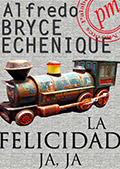 Alfredo Bryce Echenique ¿Habéis leído ya La felicidad, ja ja? ¿Y su obra maestra, Un mundo para Julius? Entonces podéis continuar con A vuelo de buen cubero, Huerto cerrado, o con Tantas veces Pedro.
Alfredo Bryce Echenique ¿Habéis leído ya La felicidad, ja ja? ¿Y su obra maestra, Un mundo para Julius? Entonces podéis continuar con A vuelo de buen cubero, Huerto cerrado, o con Tantas veces Pedro.
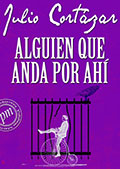 Julio Cortázar Del gran escritor argentino os ofrecemos todo. No creo que se nos escape ningún título. Vamos a ver: Alguien que anda por ahí, Las armas secretas, Bestiario, De pameos y meopas, Deshoras, Diario de Andrés Fava, Divertimento, El examen, Final del juego, Los relatos, Los reyes, Salvo el crepúsculo, Un tal Lucas, Todos los fuegos el fuego, Viaje alrededor de una mesa, La vuelta al día en ochenta mundos, 62. Modelo para armar, Historias de cronopios y de famas, Libro de Manuel, Octaedro, La otra orilla, Papeles inesperados, El perseguidor y otros cuentos de cine, Los premios, Presencia, Queremos tanto a Glenda, y cómo no, Rayuela.
Julio Cortázar Del gran escritor argentino os ofrecemos todo. No creo que se nos escape ningún título. Vamos a ver: Alguien que anda por ahí, Las armas secretas, Bestiario, De pameos y meopas, Deshoras, Diario de Andrés Fava, Divertimento, El examen, Final del juego, Los relatos, Los reyes, Salvo el crepúsculo, Un tal Lucas, Todos los fuegos el fuego, Viaje alrededor de una mesa, La vuelta al día en ochenta mundos, 62. Modelo para armar, Historias de cronopios y de famas, Libro de Manuel, Octaedro, La otra orilla, Papeles inesperados, El perseguidor y otros cuentos de cine, Los premios, Presencia, Queremos tanto a Glenda, y cómo no, Rayuela.
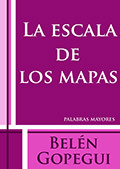 Belén Gopegui es una de nuestras autoras preferidas. ¿Cuántas veces la hemos recomendado ya? Pues nunca nos cansamos. Tenéis a vuestra disposición Lo real y La escala de los mapas.
Belén Gopegui es una de nuestras autoras preferidas. ¿Cuántas veces la hemos recomendado ya? Pues nunca nos cansamos. Tenéis a vuestra disposición Lo real y La escala de los mapas.
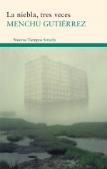 Menchu Gutiérrez Dos títulos también de esta autora: La niebla, tres veces y El faro por dentro.
Menchu Gutiérrez Dos títulos también de esta autora: La niebla, tres veces y El faro por dentro.
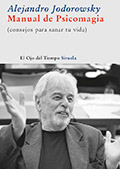 Alejandro Jodorowsky Uno de esos autores que no deja indiferente a nadie. ¿Conocéis ya el Manual de psicomagia: consejos para sanar tu vida? También podéis descargar El maestro y las magas, Evangelios para sanar, La danza de la realidad, Ojo de Oro: (Metaforismos, Psicoproverbios y Poesofía) y Psicomagia :Esbozos de una terapia pánica.
Alejandro Jodorowsky Uno de esos autores que no deja indiferente a nadie. ¿Conocéis ya el Manual de psicomagia: consejos para sanar tu vida? También podéis descargar El maestro y las magas, Evangelios para sanar, La danza de la realidad, Ojo de Oro: (Metaforismos, Psicoproverbios y Poesofía) y Psicomagia :Esbozos de una terapia pánica.
 Rosa Montero es una de las autoras con mayor éxito de ventas a lo largo de su ya extensa carrera literaria. Podéis elegir entre Amado amo, Crónica de desamor, La función Delta, Temblor y Te trataré como a una reina.
Rosa Montero es una de las autoras con mayor éxito de ventas a lo largo de su ya extensa carrera literaria. Podéis elegir entre Amado amo, Crónica de desamor, La función Delta, Temblor y Te trataré como a una reina.
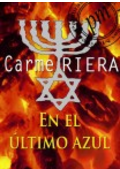 Carme Riera es la miembro más reciente de la Real Academia Española, desde noviembre 2013. En nuestra biblioteca electrónica contamos con los títulos Contra el amor en compañía y otros relatos, Cuestión de amor propio, En el último azul, Tiempo de espera y Una primavera para Doménico Guarini.
Carme Riera es la miembro más reciente de la Real Academia Española, desde noviembre 2013. En nuestra biblioteca electrónica contamos con los títulos Contra el amor en compañía y otros relatos, Cuestión de amor propio, En el último azul, Tiempo de espera y Una primavera para Doménico Guarini.
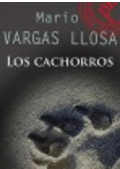 Mario Vargas Llosa debería estar sin duda mejor representado, pero aún así podemos disfrutar de dos de sus títulos más emblemáticos: Los jefes y Los cachorros.
Mario Vargas Llosa debería estar sin duda mejor representado, pero aún así podemos disfrutar de dos de sus títulos más emblemáticos: Los jefes y Los cachorros.
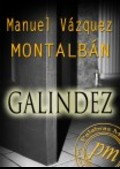 Y para terminar, siempre merece la pena recordar al añorado Manuel Vázquez Montalbán con títulos como Autobiografía del general Franco, Crónica sentimental de España, El estrangulador, Galíndez, Informe sobre la información, El manifiesto subnormal y El pianista.
Y para terminar, siempre merece la pena recordar al añorado Manuel Vázquez Montalbán con títulos como Autobiografía del general Franco, Crónica sentimental de España, El estrangulador, Galíndez, Informe sobre la información, El manifiesto subnormal y El pianista.
Lo mejor de todo es que si preferís otro tipo de literatura, otros autores, solo tenéis que teclear su nombre en la caja de búsqueda. Tenéis más de 2650 títulos a vuestra disposición. Está clarísimo: con nuestra biblioteca electrónica, el que no lee buenos libros en español es porque no quiere.
What do you think if this weekend we sat back in our favorite chair and invite any of these ten authors to visit us with their stories? They are ten successful authors, whose novels can be downloaded easily from our electronic library. See what you think of the selection (please find the list above).
Best of all, if you prefer another type of literature or other authors, you can just type their name in the search box. You have about 2650 titles available on our e-book platform. Let’s make it clear: with our electronic library, if you don’t read good books in Spanish it’s simply because you don’t want to.
Octavio Paz en su centenario / Celebrating 100th anniversary of the birth of Octavio Paz
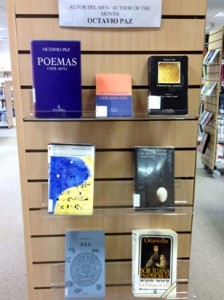 En 2014 se cumplen cien años del nacimiento de gigantes de la literatura hispánica como Bioy Casares (Argentina), Nicanor Parra (Chile), Julio Cortázar (Argentina) y Octavio Paz (México).
En 2014 se cumplen cien años del nacimiento de gigantes de la literatura hispánica como Bioy Casares (Argentina), Nicanor Parra (Chile), Julio Cortázar (Argentina) y Octavio Paz (México).
Tendremos tiempo de hablar de todos ellos a lo largo del año. Hoy nos centraremos en la figura de Octavio Paz, Premio Nobel de Literatura en 1990, que habría cumplido 100 años el próximo 31 de marzo, porque el pasado 26 de febrero la Embajada de México en Madrid presentó el programa de actos que celebrarán el nacimiento del poeta en España.
El Instituto Cervantes en Madrid comenzó las celebraciones del centenario con un Homenaje a Octavio Paz el pasado 30 de enero, con una charla del también escritor mexicano Juan Villoro que fue presentada por el director del Instituto Cervantes, Víctor García de la Concha y por Alicia Mayer, directora del Centro de Estudios Mexicanos de la UNAM (Universidad Nacional Autónoma de México), que tiene su sede en el Instituto Cervantes. Aquí tenéis el video completo de esa charla.
En Dublín, la Embajada de México en Irlanda y el Instituto Cervantes también tienen previsto homenajear a Octavio Paz con diferentes actividades. De hecho, la celebración de la tercera edición del Festival Isla de Literatura en 2014 estará dedicada a él y a Julio Cortázar, con la colaboración, igualmente, de la Embajada Argentina en Irlanda.
La biblioteca del Instituto Cervantes de Dublín ha querido sumarse a estos homenajes haciendo de Paz su autor del mes de marzo y abril. Felicidades Octavio y felicidades a todos los lectores que leen en español.
2014 marks the centenary of the birth of giants of Hispanic literature as Bioy Casares (Argentina), Nicanor Parra (Chile), Julio Cortázar (Argentina) and Octavio Paz (Mexico) .
We will talk about all of them throughout the year. But today we want to focus on the figure of Octavio Paz, Nobel Prize for Literature in 1990, born the 31st of March 1914, because on 26th February, the Embassy of Mexico in Madrid presented the program of events that will be held in Spain to celebrate the birth of the poet.
Instituto Cervantes in Madrid launched the centenary celebrations with a Tribute to Octavio Paz on 30th January with a talk by the Mexican writer Juan Villoro, presented by the director of the Instituto Cervantes, Victor Garcia de la Concha and Alicia Mayer, director of the Center for Mexican Studies at UNAM, which is based in Madrid, at the Instituto Cervantes. Above is the link for the full video of that talk.
In Dublin , the Embassy of Mexico in Ireland and the Instituto Cervantes also plan to honor Octavio Paz with different activities. In fact, the celebration of the third edition of the Isla Festival of Literature will be dedicated to him and Julio Cortázar.
In our library, he is our author of the month during March and April. Happy birthday Octavio! Congratulations to all the readers that had the opportunity to read his books.
Pudor, de Santiago Roncagliolo, nuestro audiolibro de la semana / Audiobook of the week
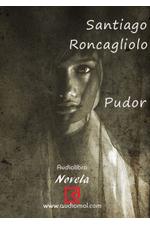 De Santiago Roncagliolo ofrecimos anteriormente su libro Matías y los imposibles, especialmente interesante para los más pequeños de la casa. Hoy os sugerimos, como audiolibro de la semana, la obra que lo convirtió en uno de los escritores jóvenes con más proyección en España y en América Latina.
De Santiago Roncagliolo ofrecimos anteriormente su libro Matías y los imposibles, especialmente interesante para los más pequeños de la casa. Hoy os sugerimos, como audiolibro de la semana, la obra que lo convirtió en uno de los escritores jóvenes con más proyección en España y en América Latina.
Pudor es un libro sobre la intimidad, sobre los deseos y los miedos que no nos atrevemos a contar a nadie, ni siquiera a las personas que más queremos. Pudor es una novela sobre los secretos con que nos protegemos para que los demás no nos hagan daño. Sus personajes son un hombre que va a morir, una mujer que recibe anónimos pornográficos, un niño que ve cadáveres, un gato que quiere sexo… Como muchas familias, todos esos personajes viven juntos y todos están solos.
Para escuchar este audiolibro, solo necesitas tu carné de biblioteca y tu contraseña. Si no lo tienes todavía, ¿a qué esperas para hacerte socio?
One year ago, we talked in our blog about other audiobook by Santiago Roncagliolo, Matías y los imposibles, especially interesting for the youngest readers and listeners. Today, we bring you the novel that made Santiago Roncagliolo one of the most promising young writers in Spain and Latin America.
Pudor is a book about intimacy, about the desires and fears that we dare not tell anyone. Pudor is a novel about the secrets that protect us. It’s characters are a man who is going to die, a woman who receives pornographic messages, a child who sees dead bodies, a cat looking for sex … Like many families, all these characters are living together and they are all alone.
To listen to this audiobook, you just need your library card and your password. If you didn’t get it, what are you waiting for? Become a member today!
Historia de un amor turbio: Audiolibro de la semana / Audiobook of the week
Historia de un amor turbio es la primera novela del autor uruguayo Horacio Quiroga. Una novela inquietante, como todos los cuentos de Quiroga, en la que se narra la historia de amor entre un hombre y dos hermanas. El joven Rohán flirtea con ambas y es difícil saber a cuál de las dos desea realmente, si a Eglé o a su hermana. Esa circunstancia provoca celos y situaciones incómodas en el transcurso de la narración que arrastran al lector hacia un final difícil de prever.
¿Cuál será finalmente la elegida? Para descubrirlo solo es neceario que tengas a mano tu tarjeta de usuario de la biblioteca y tu contraseña.
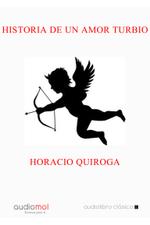
Historia de un amor turbio is the title of the first novel by Uruguayan author Horacio Quiroga. A haunting novel (like all Quiroga’s stories) that tells the love story between a man and two sisters. A young man, Rohán, flirts with both and it’s hard to know which one he really desires. This circumstance causes jealousy and uncomfortable situations that lead the reader towards an unpredictable end.
Who will be finally the chosen one? To discover it, you just need to have on hand your library card and your password.
Elena Poniatowska, nuestra autora del mes / author of the month
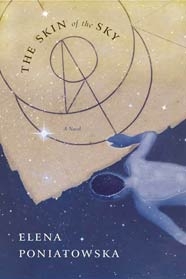
Elena Poniatowska es escritora y periodista mexicana, autora de más de 40 libros traducidos a más de 20 idiomas.
Nacida en París, en 1932, de padre francés de origen polaco y de madre mexicana, emigró a México con su familia, cuando tenía 10 años, para escapar de la Segunda Guerra Mundial.
Elena Poniatowska comenzó a escribir para el diario mexicano Excélsior a la edad de 18 años, haciendo entrevistas y columnas de sociedad. Sin embargo, su escritura pronto derivó hacia temas más sociales y políticos que se vieron reflejados en sus artículos de prensa, ensayos, novelas, relatos y libros para niños.
Quizás su obra más conocida sea La noche de Tlatelolco (publicada en inglés como Massacre in Mexico), que trata de la matanza de estudiantes mexicanos por parte de las fuerzas de seguridad durante las protestas estudiantiles que tuvieron lugar en Ciudad de México en 1968.
Otros títulos publicados por Elena Poniatowska son Hasta no verte, Jesús mío (Here’s to you, Jesusa!) que relata la vida de una mujer trabajadora a comienzos de siglo en México, y La piel del cielo (The Skin of the Sky), que narra la vida de Lorenzo de Tena, un brillante astrónomo mexicano, personaje basado en la historia real del marido fallecido de la autora, el astrónomo mexicano Guillermo Haro.
El pasado mes de noviembre, Elena Poniatowska fue galardonada con el Premio Cervantes, el premio más importante de las letras en español, por su «brillante trayectoria literaria en diversos géneros, de manera particular en la narrativa y en su dedicación ejemplar al periodismo». De este modo, el Premio Cervantes reconoce a «una de las voces mas poderosas de la literatura en español de estos días».
Todas ellas son buenas razones para hacer de Elena Poniatowska nuestra autora del mes en enero y febrero. ¿No te parece? Sus libros te están esperando en nuestra biblioteca.
Elena Poniatowska is a Mexican journalist and writer, the author of more than 40 books translated into more than 20 languages. She was born in Paris in 1932 to a Polish-French father and a Mexican mother, but she left France for Mexico, where she lives since then, when she was ten years old, to escape the Second World War.
Poniatowska began writing for the Mexican newspaper Excélsior when she was 18, doing interviews and society columns, but later she evolved to writing about social and political issues in newspapers and books, highlighting the problems of the poor.
She has written novels, journalistic essays, children’s books and short stories. Her best known work is La noche de Tlatelolco (The night of Tlatelolco, the English translation was titled “Massacre in Mexico”), an account of the killing of student protesters in Mexico City by the security forces in 1968.
Other titles by Elena Poniatowska published in English are Here’s to you, Jesusa! which portrays the life of a working class woman in early 20th century Mexico, and The Skin of the Sky, the fascinating story of the life of Lorenzo de Tena, a brilliant Mexican astronomer. This novel is based in the life of her late husband, the Mexican astronomer Guillermo Haro.
Last November, Elena Poniatowska won the Cervantes Prize, the highest literary honour in the Spanish-speaking world for her “brilliant” literary career and her “exemplary” dedication to journalism, based on a “firm commitment to contemporary history,” as “one of the most powerful voices in the Spanish-language literature of our times.”
These are all good reasons for making Elena Poniatowska our author of the month in January and February. Don’t you think so? Her books are waiting for you in our library.
Álvaro Mutis: uno de los grandes / one of the greatest American writers

Álvaro Mutis era uno de los grandes. Nacido en Colombia, en 1923, su vida transcurrió entre el trópico y las ciudades del viejo continente. Recorrió los mares, pero en su memoria quedaron grabados los cafetales, los cañaduzales y los ríos turbulentos que alcanzan dimensiones míticas en su poesía. De ese paisaje, precisamente, emerge su personaje Maqroll, a través del cual Mutis nos ofrece lo que ha sido su aventura de vivir.
En el año 2001, el escritor colombiano fue galardonado con el Premio Cervantes por su aportación a la literatura en lengua española. el pasado mes de septiembre, falleció en Ciudad de México a los noventa años. Este es nuestro pequeño homenaje. Álvaro Mutis es nuestro autor del mes en noviembre y diciembre.
- Álvaro Mutis en las bibliotecas del Instituto Cervantes.
- Álvaro Mutis en el Centro Virtual Cervantes.
Álvaro Mutis was one of the greatest Latin American writers. Born in Colombia, in 1923, he spent his life between the tropics and European cities. He traveled the seas, but the cane fields and turbulent rivers that reach mythic dimensions in his poetry were always etched in his memory. His main character, Maqroll, emerges from this landscape. Through his adventures, Mutis brings us his own adventures.
In 2001, the Colombian writer was awarded the Cervantes Prize for his contribution to literature in Spanish. Last September, Álvaro Mutis died in Mexico City. This is our small tribute to him. Álvaro Mutis is our author of the month in November and December.
Historia del llanto. Audiolibro de la semana / Audiobook of the Week
Historia del llanto, del escritor argentino Alan Pauls, es el audiolibro que hemos seleccionado esta semana para ti. Una semana en la que se ha hablado mucho de Chile, donde el domingo pasado se celebró la primera vuelta de las elecciones a la presidencia. Una novela que, precisamente, está ambientada en el contexto histórico del golpe de estado chileno.
La novela narra la historia de un niño que se hace adolescente en la Argentina de los años 70. Un niño muy sensible y aficionado a leer las aventuras de Superman.
Nuestro protagonista tiene la habilidad de hacer que los adultos destapen su alma en su presencia y, además, tiene una enorme facilidad para llorar. Una facultad que, sin embargo, pierde a los 13 años, cuando se enfrenta a la crudeza de las imágenes de la toma de la Casa de la Moneda en Chile. El adolescente no llora, no puede hacerlo, y esto hace que comience a plantearse muchas preguntas.
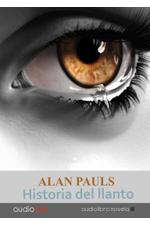
Para descargar este audiolibro solo necesitas tener lista tu tarjeta de biblioteca y tu contraseña.
Historia del llanto, by Alan Pauls, is the novel we selected for you as audiobook of the week. This novel, set in the historical context of the Chilean coup d’etat in 1973, tells the story of a child who becomes a teenager during the 70’s in Argentina. A very sensitive child, fan of Superman comics.
Our protagonist has the ability to make people uncover their soul in his presence. He is also very easy for crying. However, when faced with the rawness of the pictures of the Casa de la Moneda bombing by the Pinochet forces, our teenager does not cry. He is not able to do it, and this arises many questions inside him.
The downloading of this audiobook only requieres your library membership card and your password.
Festival Isla 2013, ¿repetimos? / Isla Festival 2013,once again?
Hace poco menos de un mes celebrábamos, en el Instituto Cervantes de Dublín, la segunda edición del Festival Isla de literatura. Ahora te ofrecemos todos los videos de las mesas redondas, las lecturas y las entrevistas que hicimos a los autores en nuestra biblioteca a través de nuestro canal de video.

Quizás te perdiste alguna mesa, quizás vivas fuera de Dublín y no pudiste asistir a ninguna de ellas, quizás quieras aprovechar los vídeos para disfrutar una vez más de la buena literatura, o es posible incluso que seas profesor de español y te interese utilizarlos en tus clases. Porque ya hemos subtitulados muchos de ellos en español. De modo que no hay excusa. Hay mil razones para verlos. Los tienes a tu disposición, mientras nosotros seguimos preparando la tercera edición del festival que se celebrará en noviembre de 2014.
Ahora, por cierto, es un buen momento para hacernos llegar tus sugerencias. ¿A qué escritor te gustaría ver en Dublín?, ¿qué crees que deberíamos cambiar en el festival?, ¿qué podríamos mejorar? Tu opinión es importante. ¡Escríbenos. Ya sabes dónde estamos!
A few weeks ago, we celebrated our Isla Festival of literature at the Instituto Cervantes in Dublin. Now, you can watch all the videos of the roundtable discussions, the literary readings and the interviews we did in our library. They are all available on our video channel .
Perhaps you missed a reading, maybe you live outside Dublin and could not attend any of them , or maybe you want to enjoy once again the taste of good literature. They are good even for practising your Spanish, as many of the videos are already subtitled. So there is no excuse . There are a thousand reasons to see them, while we continue preparing the third edition of the festival to be held in November 2014.
Now, of course , is a good time to send us your suggestions . What writer would you like to meet in Dublin?, what do you think we should improve or change for the next year. Your opinion is important so, write to us! We are more than happy to receive your feedback!
Preparando el Festival Isla 2014 / Preparing Isla Festival 2014
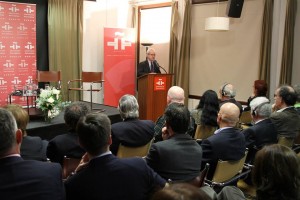 Durante este fin de semana, hemos celebrado la segunda edición del Festival Isla de Literatura. Por segundo año consecutivo, Irlanda, Latinoamérica y España se encontraron en el Instituto Cervantes de Dublín para hablar de la literatura y sus alrededores.
Durante este fin de semana, hemos celebrado la segunda edición del Festival Isla de Literatura. Por segundo año consecutivo, Irlanda, Latinoamérica y España se encontraron en el Instituto Cervantes de Dublín para hablar de la literatura y sus alrededores.
Una vez más, queremos agradecer desde aquí el apoyo y la colaboración de instituciones como Dublin UNESCO City of Literature, Ireland Literature Exchange, el Instituto Vasco Etxepare, Poetry Ireland, y cómo no, a la inestimable aportación de Dublin City University, National University of Ireland in Galway, National University of Ireland in Maynooth. Trinity College Dublin, y University College Cork. Muchísimas gracias a todos ellos.
Como dijera Rosa León, directora del Instituto Cervantes de Dublín durante su discurso de inauguración, «tenía que ser aquí, en esta isla esmeralda, donde naciera y creciera nuestro festival, donde la semilla de nuestro esfuerzo diera sus frutos. En esta misma tierra donde tantos genios de la literatura cavaron antes con su pluma para fecundarla y enriquecerla, para hacerla abierta, acogedora y libre.
Porque la gran riqueza de Irlanda es su cultura y su maravillosa tradición literaria, y esa poderosa fuerza se da la mano aquí, en este festival, con la fuerza del español, con quinientos millones de seres humanos en cuatro continentes, con la segunda lengua de comunicación a nivel internacional».
Rosa León recordó también las hermosas palabras del presidente Michael D. Higgins durante su discurso en 2012 y, como no, tuvo de palabras de cariño y reconocimiento hacia Seamus Heaney, cuya presencia estaba prevista en el festival desde antes del verano. Sus poemas, los mismos que él había elegido para su lectura durante el Festival Isla, se hicieron presentes en la sala gracias a la voz del actor irlandés Tom Hickey.
Finalmente, Rosa León cedió la palabra a otro gran amigo de Seamus y del propio Instituto Cervantes, el gran escritor irlandés John Banville, que «de forma amabilísima y desinteresadamente atendió la llamada del Instituto Cervantes para cubrir la ausencia de Seamus Heaney».
John Banville, en su intervención, recordó la impresión que le había causado, en su primera visita a España, un hombre a caballo en la isla de Mallorca. También recordó su visita a América del Sur para visitar la casa de la madre de Thomas Mann y nos hizo reflexionar, de este modo, sobre la universalidad de la literatura. Muchísimas gracias, John, por tu generosidad.
Esperamos que todos hayais disfrutado del Festival y esperamos también recibir vuestras sugerencias y aportaciones, para mejorar en lo que sea posible en la edición del Festival Isla de 2014 que hoy mismo comenzamos a preparar.
Las fotos del festival están ya disponibles en nuestra página de Facebook.
Los vídeos del Festival estarán muy pronto disponibles en nuestro canal de Youtube.
During last weekend , we celebrated the 2nd Isla Literary Festival . For the second year in a row , Ireland , Latin America and Spain joined at the Instituto Cervantes in Dublin to talk about literature and its surroundings.
Once again , we thank the support and collaboration of institutions such as Dublin UNESCO City of Literature, Ireland Literature Exchange , Instituto Vasco Etxepare, Poetry Ireland, and of course, the invaluable contribution of Dublin City University, National University of Ireland in Galway, National University of Ireland in Maynooth, Trinity College Dublin, and University College Cork. Many thanks to all of them.
As Rosa Leon, director of Instituto Cervantes in Dublin, said during her speech , “our Festival had to be born in here , in the Emeral Isle. On this same land where many geniuses of literature dug with their pens to fertilize and to enrich it , to make it an open land, free and welcoming.
Because the rich of Ireland is its culture and its wonderful literary tradition, and that powerful force joins hands here, in this festival, with the strength of the Spanish language, with half a billion of human beings on four continents , with the second language of international communication.”
Rosa Leon recalled as well the beautiful words of President Michael D. Higgins during his speech in 2012 and she had words of love and gratitude to Seamus Heaney, whose presence was expected at the Festival since before summer . His poems , the same poems he had chosen for reading during the Isla Festival, were present in the official opening thanks to the voice of the Irish actor Tom Hickey.
Finally , Rosa León gave the floor to another great friend of Seamus and Instituto Cervantes , the great Irish writer John Banville , who “so lovable and unselfishly answered our call to cover the absence of Seamus Heaney.”
John Banville recalled the impression that a man riding a horse in Mallorca made on him during his first visit to Spain. He also mentioned his trip to South America, to visit the house of Thomas Mann‘s mother and, in this way, he made us reflect on the universality of literature. Thank you , John , for your generosity .
We hope you all have enjoyed the Festival as much as we did, and we look forward to receiving your suggestions and contributions to improve, as best as we can, the 3rd edition of our Isla Festival that we start preparing today.
The photos of the Isla Festival 2013 are now available on our Facebook page .
The videos of the interviews we prepare will soon be available on our YouTube channel.
Audiolibro de la semana / Audiobook of the week: Vidas perpendiculares
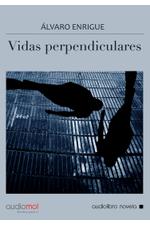
En Vidas perpendiculares, el autor Álvaro Enrigue nos cuenta la historia de Jerónimo Rodríguez, cuyos rasgos físicos son iguales a los de un típico chico mexicano. Sin embargo, al mismo tiempo, Jerónimo tiene la habilidad de sentir los miedos de su padre cuando está cerca de él, y puede recordar cuáles eran sus sentimientos cuando vivía con una tribu prehistórica o cuando vivía en el siglo XVII en Italia. El autor escribe todas estas vidas pasadas y la presente con un nexo de unión entre todas, la búsqueda del amor.
Si lo prefieres, la versión impresa de este libro también está a tu disposición en nuestra biblioteca.
Álvaro Enrigue participa mañana sábado en nuestro Festival Isla de Literatura, mañana sábado, a las 4.30 de la tarde.
In Vidas Perpendiculares Álvaro Enrique tells us about the life of Jerónimo Rodríguez Loera. He looks apparently like a typical mexican boy, but he is able to feel his father’s fears when he is close to him, and to remember all his past lives.
If you prefer reading than listening, there is a printed version of this book available in our library.
Álvaro Enrigue participates in our Isla Literary Festival, tomorrow at 4.30pm.
No solo de mesas vive el Festival Isla de Literatura / It’s not just about round table discussions
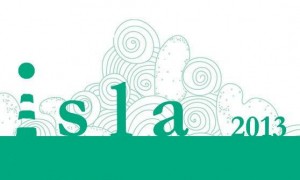 No, en el Festival Isla no solo hay mesas redondas.
No, en el Festival Isla no solo hay mesas redondas.
A lo largo de las últimas semanas hemos estado desgranando en estas páginas los detalles de las mesas redondas que conforman el Festival Isla de Literatura. Pero nuestro festival es mucho más que eso, porque además tendrás la oportunidad de asistir a lecturas en inglés y en español de textos de poesía y narrativa, leídos por sus propios autores, tendrás la posibilidad de comprar sus libros, y tendrás la ocasión de tomarte un café y un tentempié en nuestra sala de exposiciones. Allí mismo podrás encontrarte con los autores que participan en el evento y pedirles que firmen tu ejemplar.
Disfruta de la literatura, en todos los sentidos, en compañía de René Vázquez, Daniel Freidemberg, Tomás Mac Síomóin, Paula Meehan, Kirmen Uribe, Enrique Vila-Matas, John Banville, Eileen Battersby, John Boyne, Julio Espinosa, Álvaro Enrigue, María Tena, Fernando Sánchez Dragó, Marina Carr, Susana Cella y Manuel Gutiérrez Aragón. Estás avisado. ¡Allá tú si te lo pierdes!
No. Isla Festival of Literature is not just about round table discussions.
Over the last few weeks, we have been showing in these pages the details of the round table discussions that will be held during our Festival Isla of Literature. But our festival is much more than that, because you will also have the opportunity to join our readings of poetry and fiction, with texts read by the authors themselves. You will have the occasion to buy their books, and to take a coffee and a snack in our exhibition room. Right there, you can meet the authors participating in the event and ask them to sign your copy.
Enjoy the best literature in the company of René Vázquez, Daniel Freidemberg, Tomás Mac Síomóin, Paula Meehan, Kirmen Uribe, Enrique Vila-Matas, John Banville, Eileen Battersby, John Boyne, Julio Espinosa, Álvaro Enrigue, María Tena, Fernando Sánchez Dragó, Marina Carr, Susana Cella and Manuel Gutiérrez Aragón. You are warned! Don’t miss it!
También hablamos de género en el Festival Isla 2013 / A Question of Genres: Isla Literary Festival 2013
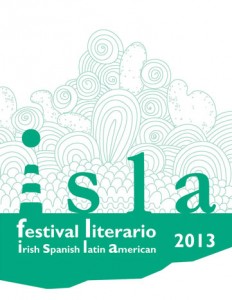 Entramos en la recta final. Llegamos a la semana en la que comienza, este mismo viernes, el Festival Isla de Literatura 2013.
Entramos en la recta final. Llegamos a la semana en la que comienza, este mismo viernes, el Festival Isla de Literatura 2013.
Precisamente en la recta final del festival, en la última mesa redonda que se celebrará el domingo día 20, contaremos con la presencia de Marina Carr, Susana Cella y Manuel Gutiérrez Aragón. Con ellos, Jean Philippe Imbert, profesor de DCU y experto en la materia, hablaremos de géneros. No solo de géneros literarios. También de género sexual. Géneros que tienden a mezclarse, a fundirse, a buscarse y, a menudo, a pelearse entre ellos.
¿Hay un género que domine sobre los demás, que ejerza su poder opresor sobre los otros?, ¿existe un género rey (o reina), o son todos igualmente necesarios? Estas y otras preguntas, y también algunas de sus respuestas, el domingo día 20, a partir de las once de la mañana.
We are now entering the stretch, very close to the beginning of the Isla Literary Festival, this Friday,18th October, 4:00pm.
Precisely, at the end of the Festival, in the last round table discussion to be held on Sunday 2oth, we will receive Marina Carr, Susana Cella and Manuel Gutiérrez Aragón. With them, Jean Philippe Imbert, DCU professor, we will talk about genres.
Genres that tend to overlap, get together, blur lines but, more often, clash with each other. Is there a single genre that dominates the rest and exerts its oppressive power over others? Is there a genre King (or Queen) or are they all equally important? These and other interesting questions, (and maybe some of the answers, who knows!) next Sunday, starting at eleven o’clock in the morning.
